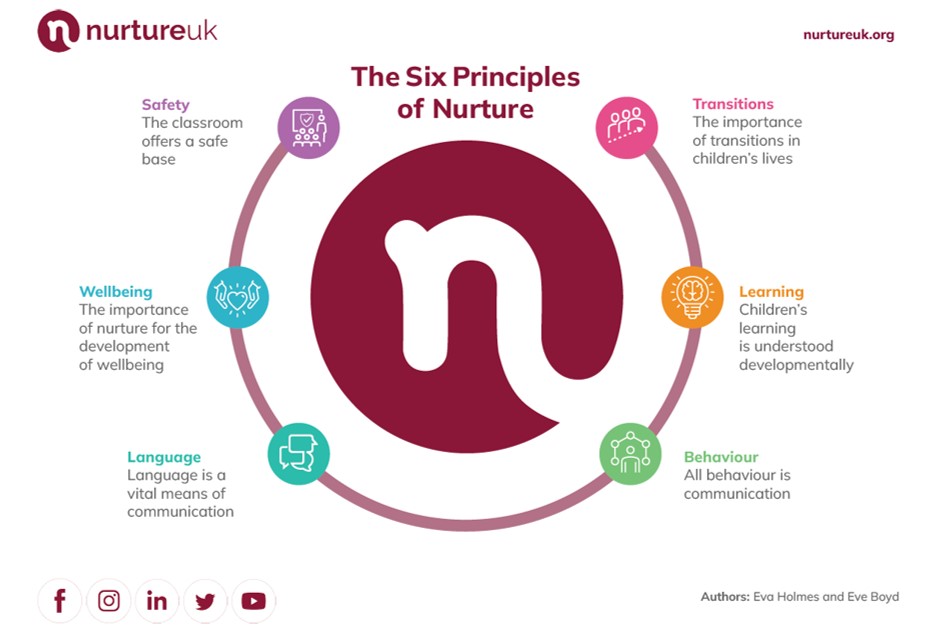Nurtureuk’s assessment tool, the Boxall Profile® Online is the UK’s most popular tool for educators assessing and addressing pupils’ social, emotional and behavioural needs. The Boxall Profile® Online supports a whole school approach to assessing and addressing children and young people’s social, emotional and behavioural development to positively impact learning, behaviour, attendance and wellbeing.
It supports educators with:
- Individualised learning plans
- An aid to assist with whole class planning and dynamics
- Quality first teaching
- Setting achievable targets that help to reinforce target behaviour and skills
- Tracking the progress of the children and young people in their setting and measuring the interventions implemented.
The Boxall Profile® Online’s unique features provide effective support to tackle individual challenges and evidence levels of need across groups - allowing educators to respond accordingly. To ensure the SEMH and behavioural assessment tool has the biggest impact for your setting, our experts have compiled their best practice tips:
1. What is the Boxall Profile®?
The Boxall Profile® was developed to provide a precise way of assessing pupil needs, planning intervention, and measuring progress in the classroom. The Boxall Profile® norms apply to children ‘competently functioning’ aged from 4-18 years. This assessment tool is for use in education settings and is not suitable for parents or carers to use as it focuses on classroom behaviours.
Each profile consists of 2 sections:
Section 1, the Developmental Strands which consist of items that describe different aspects of the developmental process of the earliest years. Satisfactory completion of the first stage of learning is essential if children are to make the most of their school experience.
Section 2, the Diagnostic Profile which consists of items describing behaviours that inhibit or interfere with the child’s satisfactory involvement with school. They may be directly or indirectly the outcome of impaired learning in the earliest years.
The Boxall Profile® Online provides a framework for the structured observation of children. The focus is not on classifying or labelling the child but on looking at their pattern of function and seeing where help and support is needed.
2. Boxall Profile® Online and The Six Principles of Nurture
Nurturing interventions work most effectively when the approach is whole school, and all staff understand The Six Principles of Nurture and how the Boxall Profile® Online supports a nurturing approach.

Utilise the Boxall Profile® Handbook alongside using the assessment tool, as there is a great deal of useful information relating to how to understand the needs of the child and use the tool as part of a holistic approach. Read and digest the information and share with colleagues when appropriate to add to their understanding of the results.
3. When should I complete a Boxall Profile® Online Assessment?
We recommend completing an assessment once per term, as part of a whole school approach.
Educators can also use the assessment tool:
- On first onset of a concern
- Prior to any additional intervention
- When an intervention appears not to be successful
4. Who should carry out the Boxall Profile® questionnaire?
- For the whole class assessment, the person that knows the pupil well in most situations would be best placed to complete the assessment. In most cases this would be the class teacher but could include any other adult who works closely with the pupil, for example a teaching assistant. It is advisable to have no more than 2 adults collaborate on any one pupil.
- For secondary colleagues it isn't so straightforward because there isn't just one teacher per class, as in Primary. So the assessment should be carried out by a person who knows them well in different situations, for example pastoral teams often know pupils well, one to one teaching assistants or mainstream teaching assistants would work also. However, no more than two people should do this together as this could cloud decisions with too many opinions.
- If this assessment is being completed for a pupil who is entering a nurture group, the class teacher should carry out each assessment, in collaboration with the nurture group practitioner. Nurture group pupils are given opportunities to learn classroom, learning, social and emotional skills and therefore, there is a need to see the impact of that intervention in the mainstream classroom. By assessing together, the teacher and nurture practitioner are showing best practice for a nurture group pupil as per the Marjorie Boxall Quality Mark Award guidance and standards.
- Please note that in a Special School setting, the nurture classroom may be their only classroom and therefore, it would be the nurture teacher who carries out the assessment.
5. Where should I base my findings?
There are many places that the pupil might be having difficulties, so the best advice is to focus upon your observations and discussions with class teachers, support staff and parents or carers to get a picture as to what the issues seem to be.
There is a list below of typical locations to base observations on but when answering the questions be sure to go with your initial gut feeling and try not to overthink answers.
- Mainstream classroom
- Additional support or intervention group
- Nurture group
- Year group
- Whole school
6. How should you answer the questions?
- Read each question carefully so that the full implication is clear. Score the question in its entirety, if anything is left out it is likely to be misleading. Certain questions seem similar but careful reading will make it clear that different levels of behaviour are under consideration.
- Do not score a zero in the developmental unless you have never seen the behaviour or situation occur at all or it is not relevant. An example of this might be to expect a very young child to behave as described in question 10, “Abides by the rules of an organised group game…” For the majority of responses, zero would be a rare occurrence. It is far more likely that you would be scoring 1: Not really or virtually never, so give the score zero serious consideration as to its relevance before you opt for it.
- Score the items in order presented by the assessment tool.
- Answer questions from a neutral stance, do not let emotion around the pupil, whether positive or negative influence your answers.
- Scoring should reflect the way the pupil is now, in this present time, no matter what the reasons for this may be. Avoid taking extenuating circumstances into account, e.g., “he’s not bad considering what he’s been through.“ Even if the pupil is lovable in many ways, score
7. Utilise new features and functionality
At nurtureuk we are committed to improving the Boxall Profile® Online, to make it an even more powerful assessment tool for schools and educational settings to assess, plan, track and help improve the social, emotional, mental health and wellbeing of their children and young people.
Here are two recent updates:
- Custom Groups - You can sort, filter and compare your data to help with grouping children and young people via certain criteria's, such as Pupil Premium or children & young people with special educational needs, to help with tracking and measuring progress and impact over time.
- Import - We have introduced a way for organisations to import their pupil data through our new Import Function. This will allow organisations to bulk upload their pupil data and allocate to the correct classes. This new function will hopefully save settings and educators valuable time and resources.
We are working to improve and add new features and you can find these on our “what’s new blog”.
8. Supporting Training and CPD
Nurtureuk recommends that at least one member of staff in each school or educational setting is trained to use the Boxall Profile® Online, ensuring the assessment tool is used effectively and has the most impact. We offer the Introduction to the Boxall Profile® Online, an online self-paced course, included with every subscription for up to 10 users.
Nurtureuk also offers a one-day course, the Theory and Practice of the Boxall Profile®, to support educators and professionals with using the Boxall Profile® effectively. The course covers:
- Completing the Boxall Profile®
- Interpreting and analysing the results
- Setting targets and developing practical strategies.
We also offer a range of webinars, resources and publications to support the Boxall Profile® Online and help embed a nurturing approach across the whole school and support nurture groups and nurture interventions.
We hope you have found these best practice tips useful. If you have any questions about the tool please get in touch with our customer care team. To find out more about the Boxall Profile® Online or nurtureuk courses, webinars, membership and publications that Nurtureuk can offer to support you and your pupils visit https://www.nurtureuk.org/.
.

